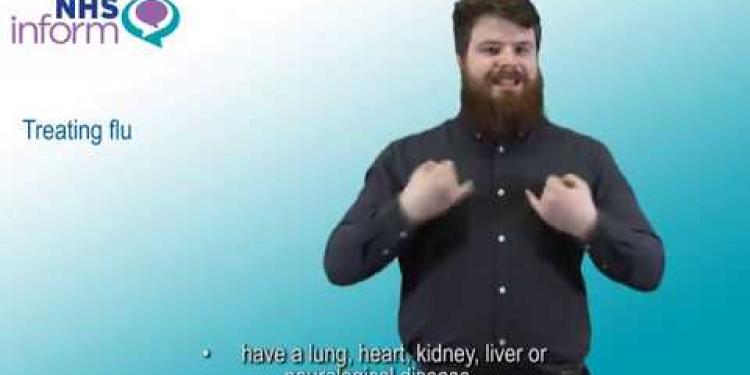Important Information On Using This Service
- Ergsy carefully checks the information in the videos we provide here.
- Videos shown by YouTube after a video has completed have NOT been reviewed by ERGSY.
- To view, click the arrow in the center of the video.
Using Subtitles and Closed Captions
- Most of the videos you find here will have subtitles and/or closed captions available.
- You may need to turn these on and choose your preferred language.
Turn Captions On or Off
- Go to the video you'd like to watch.
- If closed captions (CC) are available, settings will be visible on the bottom right of the video player.
- To turn on captions, click settings.
- To turn off captions, click settings again.
Find A Professional
More Items From Ergsy search
-

Current Flu Vaccination Recommendations and Availability
Relevance: 100%
-

Flu vaccinations for people with a learning disability
Relevance: 87%
-

Understanding Seasonal Flu: Prevention and Treatment
Relevance: 79%
-

Flu can be fatal
Relevance: 77%
-

Just the flu? | NHS
Relevance: 73%
-

Symptoms of flu (influenza)
Relevance: 70%
-
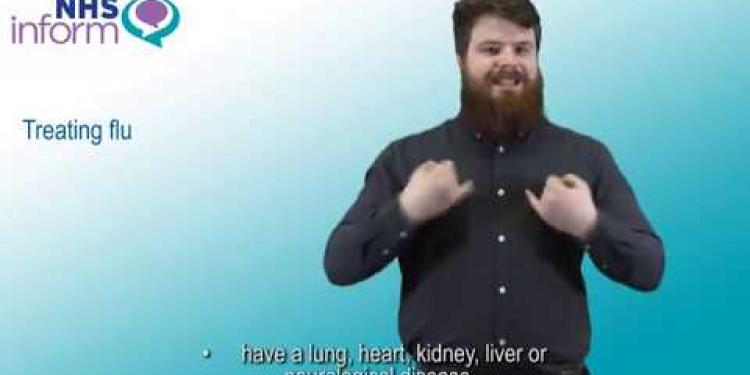
Treating flu (influenza)
Relevance: 63%
-

Latest Advice on Managing Respiratory Illnesses During Flu Season
Relevance: 63%
-

Heart Failure : Treatment and monitoring of fluid retention
Relevance: 60%
-

What are the symptoms of flu ?
Relevance: 54%
-

How to prevent dehydration | NHS
Relevance: 42%
-

Can genetics influence obesity?
Relevance: 22%
-

Why do interest rates rise and fall?
Relevance: 20%
-

Evidence-Based Interventions: grommets for glue ear in children
Relevance: 19%
-

Giving Voice - Stammer and Fluency Problems
Relevance: 18%
-

Oral Health Awareness - Tooth Decay
Relevance: 16%
-

Glue Ear Pathway
Relevance: 15%
-

Self care: Treating ear infections
Relevance: 14%
-

Bowel Cancer
Relevance: 14%
-

The True History of the Catholic Church That No One Told You
Relevance: 12%
-
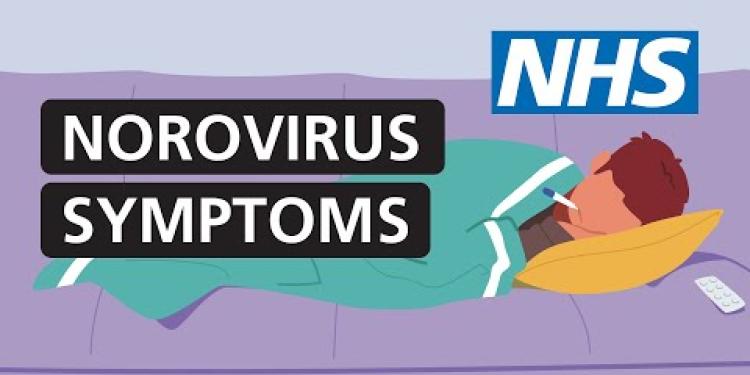
What is norovirus? (Diarrhoea and vomiting bug) | NHS
Relevance: 12%
-

Are there any societal factors that contribute to obesity?
Relevance: 12%
-

What should I eat to help with chronic kidney disease?
Relevance: 12%
-

Dealing with Common Childhood Illnesses
Relevance: 11%
-

How do interest rate changes affect my mortgage payments?
Relevance: 11%
-

Heart Failure : Symptoms of heart failure
Relevance: 10%
-

Peritoneal Dialysis - Information Video
Relevance: 9%
-

How long does a common cold typically last?
Relevance: 9%
-
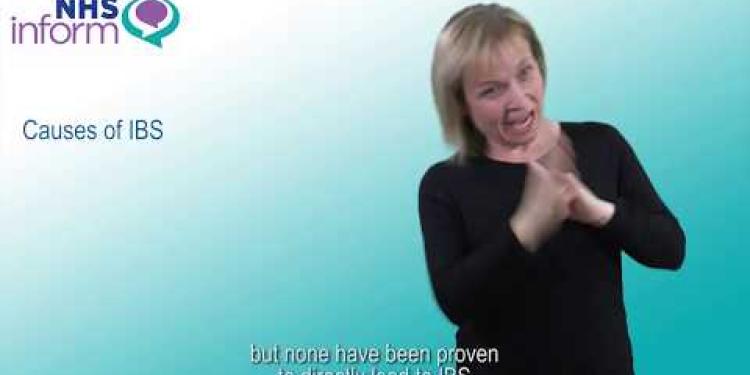
Causes of irritable bowel syndrome (IBS)
Relevance: 9%
-

Will's story on having therapy - Stammering
Relevance: 9%
-

What causes lupus in children?
Relevance: 9%
-
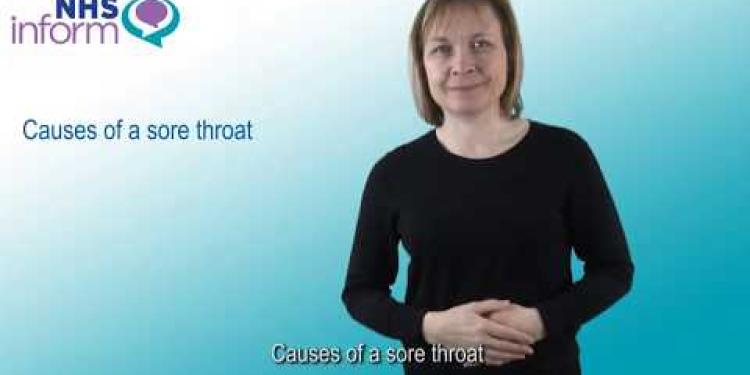
Causes of a sore throat
Relevance: 8%
-

How to treat constipation | NHS
Relevance: 8%
-

Adam's story on stammering - Therapy
Relevance: 8%
-

The history of the Baptist Church and Anabaptist: The Good The Bad and the Ugly
Relevance: 8%
-

Dental Health: Tips for All Ages
Relevance: 8%
-

NHSGGC - Diet and Chronic Kidney Disease (CKD)
Relevance: 8%
-

Does Menopause Only Happen in Your 50's? | NHS 24
Relevance: 7%
-

What are the common symptoms of a cold?
Relevance: 7%
-

What causes obesity?
Relevance: 7%
Just the flu? | NHS
Understanding the Flu
Influenza, commonly known as the flu, is a highly contagious viral infection that primarily affects the respiratory system. Unlike the common cold, the flu can lead to severe health complications. It spreads through droplets from coughs and sneezes, and can be contracted by touching contaminated surfaces. Symptoms typically include fever, chills, muscle aches, cough, congestion, runny nose, headaches, and fatigue.Why the Flu Isn't "Just" the Flu
Many people underestimate the severity of the flu, dismissing it as just a bad cold. However, the flu can lead to serious health issues, especially in vulnerable populations such as the elderly, young children, pregnant women, and individuals with chronic health conditions. Complications can include pneumonia, bronchitis, sinus infections, and, in extreme cases, can be fatal.Prevention and Vaccination
Vaccination is the most effective way to prevent the flu. The NHS offers free flu vaccines to eligible groups, including people aged 50 and over, people with certain health conditions, and frontline health and social care workers. Good hygiene practices, such as washing hands regularly, using tissues when sneezing or coughing, and avoiding close contact with infected individuals, also help to reduce the spread of the flu.When to Seek Medical Advice
If you suspect you have the flu and are experiencing severe symptoms, or if you are in a high-risk group, it's important to seek medical advice. The NHS 111 online service can provide guidance on your symptoms and whether you need to see a doctor. Call 999 or visit A&E if you have difficulty breathing, chest pain, or sudden confusion.Conclusion
The flu is more than just a minor inconvenience; it can be a serious health threat. Understanding the importance of prevention, recognizing symptoms, and knowing when to seek medical help can make a significant difference in managing the flu. Stay informed and take proactive steps to protect yourself and others.Just the Flu? | NHS
What is the Flu?
The flu is a virus that makes you sick. It spreads easily and affects your breathing. It is more serious than a cold. The flu can make you very sick. Coughing and sneezing spread the flu. You can also catch it from surfaces that have the virus. Common symptoms are a high temperature, feeling cold, muscle pain, cough, stuffy nose, runny nose, headache, and feeling very tired.Why the Flu Is Serious
Some people think the flu is just like a bad cold. But the flu is more serious. It can make people very sick, especially older people, young kids, pregnant women, and people who have other health problems. The flu can cause even more serious problems like pneumonia or chest infections. Sometimes, it can even lead to death.How to Prevent the Flu
Getting a flu shot is the best way to avoid getting sick. The NHS gives free flu shots to some people, such as those over 50, people with certain health issues, and people who work in health care. Washing your hands often, using a tissue when you sneeze or cough, and staying away from sick people can also help stop the flu from spreading.When to Get Medical Help
If you think you have the flu and feel very sick, or if you are in a group that can get very sick from the flu, you should talk to a doctor. You can use the NHS 111 online service to get advice. If you have trouble breathing, chest pain, or feel confused suddenly, call 999 or go to the emergency room.Final Thoughts
The flu is not just a little problem; it can be very dangerous. Knowing how to prevent the flu, understanding its symptoms, and knowing when to get medical help can help you stay safe. Stay informed and take steps to protect yourself and those around you.Frequently Asked Questions
What is the flu?
Flu, or influenza, is a common infectious viral illness spread by coughs and sneezes. It's not the same as the common cold.
What are the symptoms of the flu?
Flu symptoms include a sudden fever, body aches, tiredness, dry cough, sore throat, headache, and difficulty sleeping.
How does the flu spread?
The flu spreads mainly by droplets made when people with flu cough, sneeze or talk, which can be inhaled by people nearby.
How can I prevent the flu?
You can help prevent the flu by getting the flu vaccine, practicing good hand hygiene, and avoiding close contact with sick people.
Who is eligible for a free flu vaccine?
In the UK, free flu vaccines are offered to people over 65, pregnant women, primary school children, and people with certain health conditions.
Can the flu be treated with antibiotics?
No, antibiotics do not work against viral infections like the flu.
What should I do if I have the flu?
If you have the flu, rest and sleep, keep warm, drink plenty of water, and take paracetamol or ibuprofen to lower a high temperature and relieve aches.
How long does the flu last?
Most people recover from the flu within a week, although you may feel tired for longer.
When should I see a doctor for the flu?
See a doctor if you have a high fever that doesn't go down, confusion, chest pain, or if your symptoms don't improve after seven days.
Can I catch the flu more than once?
Yes, because the flu virus changes regularly, you can catch it multiple times as immunity to one strain does not protect against another.
What is the difference between a cold and the flu?
Colds are generally milder than flu, with symptoms such as a runny nose and sore throat. Flu has more severe symptoms like high fever and muscle aches.
Is it safe to get a flu vaccine during pregnancy?
Yes, it is safe and recommended to get the flu vaccine during pregnancy to protect both the mother and the baby.
Can the flu vaccine give me the flu?
No, the flu vaccine cannot give you the flu. It contains an inactivated virus that cannot cause illness.
How effective is the flu vaccine?
The flu vaccine's effectiveness varies each year but generally reduces the risk of flu illness by 40-60% among the overall population.
Are there any side effects of the flu vaccine?
Common side effects of the flu vaccine include a sore arm, mild fever, and muscle aches, which usually go away within a few days.
What is the flu?
The flu is a sickness that can make you feel very tired and hot. People with the flu might cough, have a runny nose, or an achy body.
If you think you have the flu, it's important to rest and drink lots of water. Tell a grown-up who can help you see a doctor if you need to.
You can use pictures or ask someone to explain things to you if you don’t understand.
The flu is a type of sickness. It is caused by a virus. You can catch it when people cough or sneeze. The flu is different from a cold.
What happens when you have the flu?
When you get the flu, you might feel sick. Here are some things that could happen:
- You might have a hot feeling, called a fever.
- You might start to cough a lot.
- Your throat might feel sore.
- You might feel very tired.
- Your body might hurt all over.
- Your nose might run or feel blocked.
It helps to rest, drink lots of water, and get advice from a grown-up or doctor if you feel very sick.
When you have the flu, you might suddenly feel very hot (this is called a fever). Your body might hurt, and you can feel really tired. You might also have a dry cough, a sore throat, a headache, and trouble sleeping.
Here are some tools and techniques to help you feel better:
- Use a thermometer to check your temperature.
- Rest as much as you can.
- Drink lots of water.
- Use a cool cloth on your forehead if you feel too hot.
- Ask an adult to help you get medicine if you need it.
How does the flu spread?
The flu is a virus. This means it can make people sick.
Here is how the flu can spread:
- When a sick person coughs or sneezes, tiny drops go in the air.
- You can breathe in these drops and get sick too.
- You can touch things like door handles where the virus might be. Then, if you touch your face, you can get sick.
You can do some things to keep safe:
- Wash your hands with soap often.
- Try not to touch your face.
- Stay away from people who are coughing or sneezing.
These steps help you stay healthy!
The flu spreads when people with the flu cough, sneeze, or talk. Tiny drops come out and can be breathed in by other people nearby.
How can I stop getting the flu?
Here are some simple ways to help you stay healthy and not get the flu:
- Get a flu shot. A flu shot can protect you from the flu.
- Wash your hands often. Use soap and water to clean your hands.
- Stay away from people who are sick. This can stop you from catching the flu.
- Eat healthy food and get lots of sleep. This makes your body strong.
- If you feel sick, tell an adult. They can help you get better.
Using pictures or videos can also help you understand these steps better. You can ask someone you trust to show you what to do.
You can stop yourself from getting the flu. Get a flu shot, wash your hands a lot, and stay away from people who are sick.
Who can get a free flu shot?
Some people can get a flu shot without paying.
Children, older people, or people with certain health problems might get it for free.
Tools like picture guides or help from a friend can make understanding easier.
In the UK, some people can get free flu shots. These are:
- People over 65 years old
- Pregnant women
- Children in primary school
- People with certain health problems
If you are one of these people, you can ask your doctor about getting a flu shot. It helps keep you healthy!
Can you use antibiotics to treat the flu?
No, antibiotics do not work against viruses like the flu.
What should I do if I have the flu?
If you have the flu, here are some easy-to-do things to feel better:
- Rest: Sleep lots to help your body fight the flu.
- Drink: Have lots of water, juice, or soup to stay hydrated.
- Medicine: Use medicine like paracetamol to help with fever and aches.
- Ask for Help: Talk to a grown-up or call a doctor if you feel very sick.
- Stay Home: Try not to go out so you don't give the flu to others.
You can also use a calendar or ask someone to remind you to take your medicine and drink fluids.
If you have the flu, here are some things you can do:
- Get lots of rest and sleep.
- Stay warm.
- Drink plenty of water.
- Take medicine like paracetamol or ibuprofen if you have a fever or body aches.
These steps can help you feel better.
How long does the flu last?
The flu is a sickness that makes you feel bad. You might have a sore throat, runny nose, or feel very tired.
Most people with the flu feel sick for about a week. This means 7 days. Some people feel better in a few days. For others, it can take a bit longer.
Here are some things you can do to feel better:
- Rest a lot. This means lying down and sleeping as much as you can.
- Drink lots of water or juice. This keeps your body strong.
- Eat healthy foods like fruits and vegetables.
- Ask a grown-up for medicine if you have a fever or sore throat.
If you feel very sick or not better after a week, talk to a doctor. The doctor can help you.
Try using a calendar to count the days you feel sick. This can help you see if you are getting better.
Keep clean by washing your hands a lot. This helps stop the flu from spreading.
Most people get better from the flu in one week. But you might feel tired for a bit longer.
When should I go to the doctor for the flu?
You should see a doctor if you have the flu and:
- Your breathing is hard.
- Your chest hurts.
- You feel dizzy a lot.
- You can't stop vomiting.
- You feel really weak or tired.
- Your fever doesn't go away.
If you want help understanding this, ask someone you trust to read it with you. You can also use a computer to read the words out loud.
Go to the doctor if you have:
- A high temperature that doesn't go away
- Feel confused
- Chest pain
- Symptoms that don't get better after 7 days
Try using a thermometer to check your temperature. Ask someone to help you remember to take your medicine. You can also set a timer to remind you when to take it.
Can I get the flu more than one time?
Yes, you can get the flu more than once. The flu virus can change, and there are different types of flu viruses.
To help keep safe:
- Wash your hands often with soap and water.
- Get a flu shot every year.
- Stay away from people who are sick.
- Cover your mouth and nose when you sneeze or cough.
These steps can help you stay healthy and avoid getting the flu again.
Yes, you can get the flu more than once. This is because the flu virus changes a lot. If you are safe from one type of flu, it does not mean you are safe from another.
How are a cold and the flu different?
A cold and the flu are both sicknesses. They can make you feel bad, but they are not the same. Here is how they are different:
- Cold: A cold can give you a runny nose, cough, and sneezing. It is not as serious as the flu. You might feel a bit tired, but you can usually still do things.
- Flu: The flu is worse than a cold. It can make you feel very tired and sick. You might have a fever, which means your body is too hot. You might also get a headache and body aches.
If you feel sick, rest and drink water. Tell a grown-up or see a doctor if you feel very bad.
Some tools and techniques to help you understand better:
- Pictures can help you see what is being talked about.
- Talking to someone about it can help too. They can explain things to you.
Colds are not as bad as the flu. If you have a cold, you might get a runny nose or a sore throat. The flu is worse. It can give you a high fever and make your muscles hurt.
Is it okay to get a flu shot when you are pregnant?
If you are pregnant, it is okay to get a flu shot. The flu shot helps protect you and your baby from getting sick.
Here are some tips to help you understand:
- Ask your doctor or nurse if you have questions.
- You can use pictures or videos to learn more.
- It is good to have someone explain it to you step by step.
Yes, it is safe for pregnant women to get the flu shot. It helps keep both the mom and the baby healthy.
Can the flu shot make me sick with the flu?
No, the flu shot cannot make you sick with the flu. It has a virus that is not alive, so it cannot make you ill.
Does the flu shot work well?
The flu shot helps keep you from getting sick with the flu. But it does not work every time.
Here is how it can help:
- It can stop you from getting the flu.
- If you do get the flu, the shot can help you not be as sick.
- Getting the shot helps protect other people too.
Some things that can help you understand better:
- Use pictures or videos about the flu shot.
- Ask someone you trust to explain it to you.
- Write down questions to ask your doctor.
The flu shot works differently every year. Most of the time, it can make it 40-60% less likely for people to get sick with the flu.
Does the flu shot have any side effects?
When you get the flu shot, sometimes it can cause a few side effects. Side effects are things that might make you feel a bit different after getting the shot.
Common side effects can include:
- A sore arm where you got the shot.
- A headache.
- Feeling a bit tired.
- A slight fever.
These side effects are usually mild and go away on their own in a day or two.
If you are worried about the side effects, talk to an adult you trust or a doctor.
Here are some tools and tips to help you:
- Use a pillow to make your arm more comfortable if it's sore.
- Drink plenty of water to stay hydrated.
- Rest if you feel tired or have a headache.
When you get the flu shot, your arm might feel a bit sore. You might also get a mild fever or have aches in your muscles. These usually go away in a few days.
Useful Links
Useful links from: Understanding Seasonal Flu: Prevention and Treatment
- NHS - Flu Comprehensive guide by the NHS on flu, including symptoms, causes, diagnosis, treatment, and prevention tips.
- NHS - Flu vaccination Detailed information from the NHS about the flu vaccine, who should get it, how it works, and its effectiveness.
- Asthma UK - Flu and People with Asthma Advice from Asthma UK on the impact of the flu on people with asthma, including prevention tips and the importance of vaccination.
- British Lung Foundation - Flu (influenza) The British Lung Foundation's resource providing information on flu, how it affects people with lung conditions, and preventive measures.
Useful links from: Current Flu Vaccination Recommendations and Availability
- NHS - Flu Vaccine Official NHS page providing comprehensive information about the flu vaccine, including who should get it, when to get it, and how it works.
- NHS Inform - Flu Vaccination NHS Inform website providing advice for Scotland on the flu vaccination, detailing eligibility and where to get vaccinated.
- Age UK - Flu Vaccine Age UK offers guidance on the flu vaccine for older people, explaining the benefits and how to get vaccinated.
- Asthma + Lung UK - Flu Jab Advice Asthma + Lung UK provides detailed advice regarding the importance of the flu jab for individuals with respiratory conditions like asthma.
Useful links from: Flu can be fatal
- NHS - Flu Comprehensive information on flu including symptoms, causes, diagnosis, treatment, and prevention provided by the UK's National Health Service.
- NHS - Flu vaccine Detailed guidance on the flu vaccine, who should get it, and why it's important to prevent serious flu-related complications.
- British Lung Foundation - Influenza Resources and support for individuals with lung conditions to understand the impacts of flu and how to stay protected, provided by the British Lung Foundation.
- Asthma UK - Flu (influenza) Advice for those with asthma on how to manage flu, potential complications, and the importance of vaccination, provided by Asthma UK.
Useful links from: Symptoms of flu (influenza)
- NHS - Flu NHS page providing comprehensive information on flu symptoms, causes, diagnosis, treatment, and prevention.
- British Lung Foundation - Flu British Lung Foundation's guide to flu, its symptoms, and how it can affect those with lung conditions.
- Patient.info - Flu Symptoms Patient.info's detailed leaflet on influenza, covering symptoms and treatment options.
- Asthma UK - Flu and People with Asthma Asthma UK's advice for people with asthma regarding flu symptoms, prevention, and management.
Useful links from: Treating flu (influenza)
- NHS - Flu Treatment Official NHS page providing comprehensive information on symptoms, causes, treatments, and prevention of flu (influenza).
- NHS - How to Treat Flu NHS guide detailing practical advice on treating flu at home, including rest, hydration, and medication.
- British Lung Foundation - Understanding Flu Information from the British Lung Foundation on managing flu, particularly for individuals with pre-existing lung conditions.
- Patient.info - Flu Patient.info's comprehensive guide on flu, including symptoms, treatment options, and prevention tips.
Useful links from: What are the symptoms of flu ?
- NHS - Flu NHS page providing comprehensive information on flu symptoms, treatment, and prevention.
- British Lung Foundation - Flu British Lung Foundation resource offering guidance on flu symptoms, risks, and how to protect yourself.
- Asthma UK - Flu and Asthma Asthma UK resource discussing the symptoms of flu and its impact on people with asthma.
- NHS Inform - Flu Symptoms NHS Inform page detailing flu symptoms, including how to differentiate it from the common cold.
Have you found an error, or do you have a link or some information you would like to share? Please let us know using the form below.
- Ergsy carfully checks the information in the videos we provide here.
- Videos shown by Youtube after a video has completed, have NOT been reviewed by ERGSY.
- To view, click the arrow in centre of video.
- Most of the videos you find here will have subtitles and/or closed captions available.
- You may need to turn these on, and choose your preferred language.
- Go to the video you'd like to watch.
- If closed captions (CC) are available, settings will be visible on the bottom right of the video player.
- To turn on Captions, click settings .
- To turn off Captions, click settings again.



